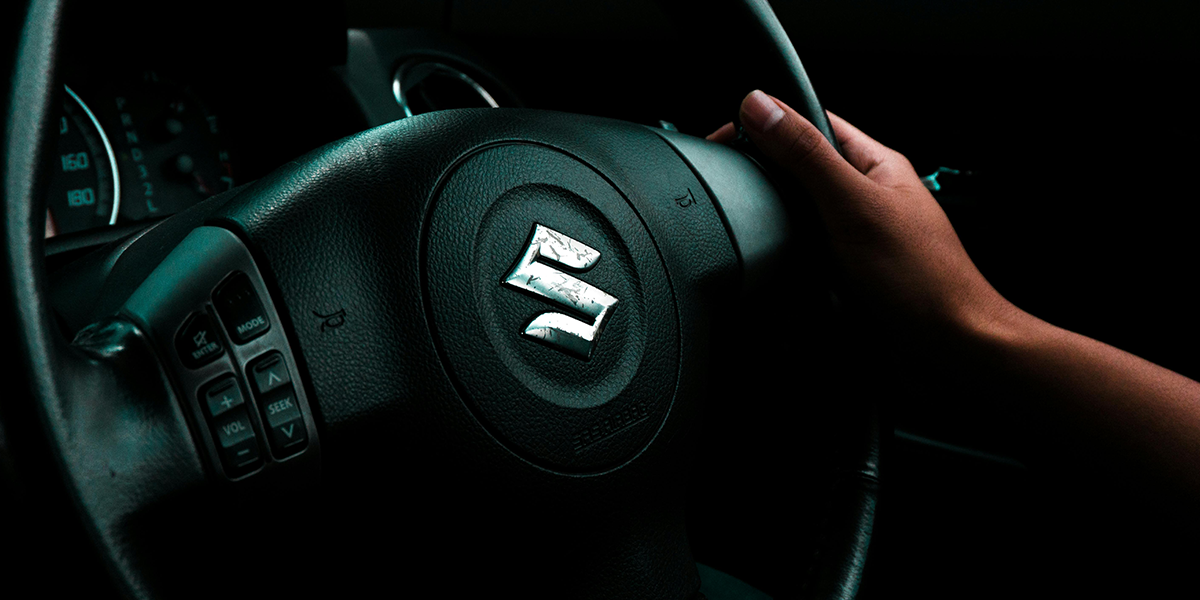In today’s economy, people are having to become thriftier than ever. Financial literacy is one of the best weapons against the rising cost of living, and part of that involves tracking every outgoing. Basically, it’s simple maths – you shouldn’t spend more than you take home.
In addition to managing day-to-day expenses like food shopping, it’s helpful to anticipate more significant costs, such as mortgage and car repayments. Vehicles, as a whole, eat up a substantial chunk of the average Brit’s wage, with total monthly payments (including fuel, insurance and maintenance) averaging around £317 per month.
While home ownership and supermarket shelves aren’t our strong points, we do know a lot about cars. The following guide explains how to estimate your monthly car repayments (hint: by using our handy car finance calculator) and what variables can affect the total amount.
How much should I spend on a car?
Of course, your monthly repayments depend on the cost of the vehicle – the more expensive the car, the greater they’ll be. But how much should you spend in the first place?
While we can’t give you a definite answer, as a rule, you should allocate no more than 10% to 15% of your income on car repayments. If you earn £35,000, that’s £3,500 per year. On top of this, the total amount you spend on your vehicle shouldn’t exceed 20% of your income. This includes planned and unplanned maintenance, insurance and fuel.
Top tip: Before entering into a credit agreement, you must assess whether you can afford the repayments for the duration of the loan. Otherwise, it’ll impact your credit score.
How much can I borrow to buy a car?
Most people simply don’t have the resources to buy a car outright. Instead, they borrow money from reputable lenders. The most common types of car finance agreements are personal contract purchase (PCP), hire purchase (HP), leasing (personal contract hire) and a personal loan.
Whatever you choose, the amount you can borrow depends on your circumstances. Credit brokers and lenders will assess your income, outgoings and debt before making a final decision.
What variables affect monthly repayments?
If you want to estimate your monthly car repayments, consider the following variables. Each one will influence the final figure:
- Car price
- Down payment
- New vs used
- Repayment term
- Interest rate
- Credit history
Top tip: Finance calculators are easy and free to use. They provide an estimate of what your monthly payments could be based on your credit profile.
Car price
As mentioned earlier, the more expensive the car, the higher the monthly repayments. Remember that running costs, unplanned costs and service charges aren’t included in this figure, so don’t blow your entire budget on the initial purchase.
Down payment
Much like a house deposit, a down payment is a lump sum paid upfront by the customer. It’s deducted from the total cost of the car, reducing the overall amount that has to be financed. The size of a down payment determines monthly repayments, interest rates and repayment terms.
How much should a down payment be? You’ll usually receive better contract terms if you cover around 20% of the total cost of the car. However, any size deposit will help lower the cost of finance and you shouldn’t put yourself under financial pressure by paying more than you can afford.
New vs used
Used cars are your best bet if you want lower monthly repayments. Firstly, they’re often less expensive, so you don’t need to borrow as much. Secondly, and perhaps most importantly, they tend to depreciate in value slower than new cars, meaning you might not lose as much money in the long run.
Repayment term
A repayment term is the amount of time you have to pay back your car finance. The average car loan length for new vehicles is 72 months, compared to 65 months for used vehicles.
So, which is better – short or long repayment terms? It depends. The longer the term, the lower the monthly repayments. However, you’ll make more payments overall and accrue more interest. Ultimately, longer repayment terms might be more manageable for low-income households but aren’t necessarily cheaper over time.
Another thing to think about here is depreciation. If your car crashes in value, a longer loan term might mean, that eventually, the outstanding balance is actually worth more than the car itself.
Interest rate
As with any loan, interest rates will influence your monthly repayments. High interest rates mean you’ll pay more, so it’s important to find the best possible deal before committing to a finance plan. Shop around for a good APR (annual percentage rate) – this tallies total costs (including interest rates) to provide an accurate insight into how much your loan will be.
What should you be aiming for? Generally, 10.9% is considered good for someone with an excellent credit score, and anything up to 12% is reasonable. If you have a poor credit score or no credit history at all, you could be looking at 20% or higher.
Credit history
Your credit history is a biggie and one of the most significant factors in deciding how much you can borrow. While lenders might accept applicants with poor credit on a case-by-case basis, it’s much harder to secure finance with reasonable terms. For example, you’ll probably pay higher interest rates.
Top tip: If you have a poor credit score and want to reduce your monthly repayments, make a larger down payment or find a trustworthy guarantor to back your claim. Bear in mind that your guarantor becomes liable for your repayments, and therefore, this option is a big responsibility that should be carefully considered.
How much will my monthly repayments be?
It’s impossible to say for sure how much your monthly repayments will be unless we have all the information above. For more information, why not use our car finance calculator?
The calculator is especially handy for people who are short on time. Simply input your loan amount, repayment term and credit rating, and the calculator will provide an instant breakdown of expected costs. Everyone’s welcome to apply, including those with poor credit scores. Plus, we have the largest panel of lenders out of any broker in the UK.
Try our handy online car finance calculator today and discover just how My Car Credit can help you get behind the wheel today.
Rates from 9.9% APR. Representative APR 10.9%
Evolution Funding Ltd T/A My Car Credit
Require more help?
Got a question you can’t find the answer to, or need some advice and guidance around taking out car finance? Our Car Credit Specialists are friendly, experienced, and here to help so get in touch today!












